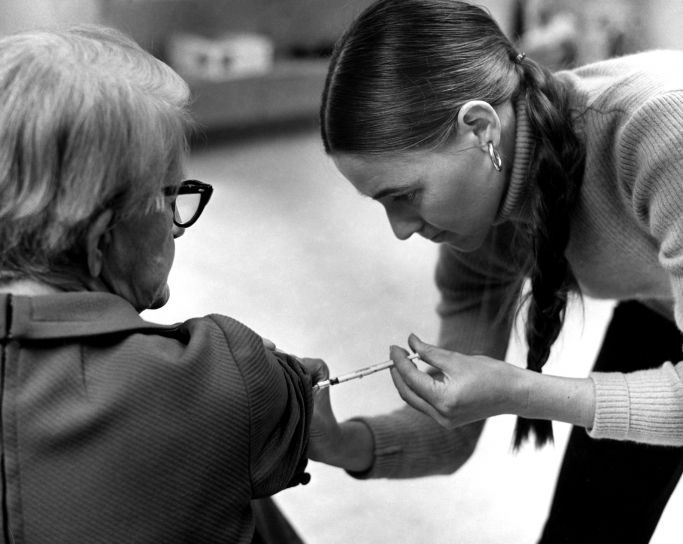A lighter-than-normal flu season could be a consequence of the public health measures to stop the coronavirus
Social distancing measures for COVID-19 may be having the positive, unintended consequence, of also reducing cases of influenza this year, new data shows.
The number of flu notifications reported last week by the Immunisation Coalition showed cases were down 1.6% in the first three months of the year compared with the same time in 2019.In March alone, flu cases decreased 26% from the previous month. This was despite a sharp increase in respiratory testing taking place due to the COVID-19 outbreak.
It seems that patients in their effort to avoid contracting COVID-19 might also be reducing their risk of exposure to influenza by staying home and practicing more rigorous personal hygiene methods, as recommended by the Department of Health.
But Associate Professor Michael Woodward, geriatrician and director of aged care research and head of memory at Austin Health in Victoria, said even though measures were being taken to protect patients against COVID-19, it was important to remember that influenza could kill hundreds, if not thousands, of Australians every year.
“I don’t think that we want to be complacent about flu, although it is right to speculate that we won’t have as many cases this year,” he said.
“But the last thing you want is to have to go to hospital because you have a bad episode of the flu and you find that the hospital is overwhelmed with COVID-19.
“It may be that you get exposed to COVID-19, as well as having the flu, or, if you are in the small percentage of people who need the ICU for flu, the ICU might be full of patients with COVID.
“We certainly want people to get their flu vaccine as we always have, and it’s possible that it’s going to be harder to get the flu vaccine if the COVID-19 situation starts to swamp the health system.”
To avoid such a crisis, the RACGP last week urged all GPs to contact their patients to encourage getting the flu vaccine as soon as possible.
Professor Woodward said patients aged 65 and over and yet to receive a flu vaccine should be of particular priority in the coming weeks.
The National Immunisation Program and the private market in Australia have secured more than 13.5 million doses of seasonal influenza vaccines for this year.
This includes more than four 4 million doses of the newly approved Fluad Quad vaccination for those aged 65 years and older, which can only be administered by a GP.
Professor Woodward said patients should be encouraged to get in contact with their GP practice on the phone to organise a time, ideally in the next couple of weeks, to receive the vaccine.
“I don’t want GPs to be swamped by people wanting the flu vaccine, nor do I want patients to get the idea that if they get the flu vaccine, they’re somehow going to be protected from COVID-19, which of course is completely wrong,” he said.
“And of course, patients shouldn’t go to the surgery if they’re feeling unwell, but it’s always been the recommendation anyway to not go get a flu vaccine if you have flu-like symptoms at the time.”




